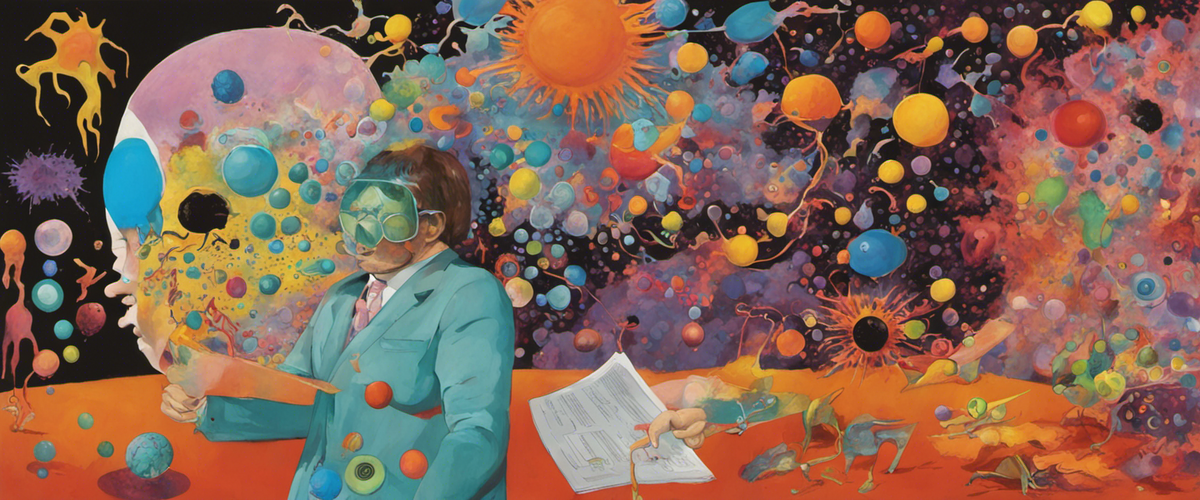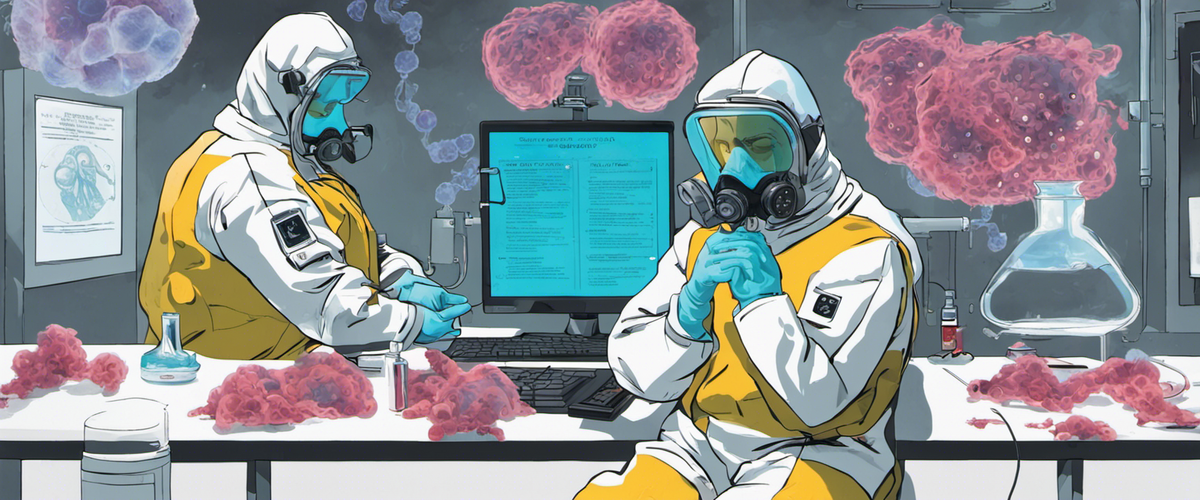
Chapter 1 What's The Hot Zone
The Hot Zone is a non-fiction book written by Richard Preston. It was first published in 1994. The book discusses the origins and spread of viral diseases, particularly focusing on the Ebola virus. It explores the true story of various outbreaks of deadly diseases, including a particularly dangerous strain of Ebola called Ebola Reston, which was discovered in monkeys in a facility in Reston, Virginia.
Preston also documents the efforts of scientists and medical professionals who worked to contain and study the Ebola virus, as well as the potential risks and implications of the disease spreading to humans. The book provides a chilling account of the deadly nature of these viruses and their potential to cause catastrophic epidemics.
The Hot Zone gained significant attention and became a best-seller due to its gripping storytelling and scientific analysis of viral outbreaks. It has been credited with raising public awareness about the dangers of infectious diseases and inspiring further research into the prevention and treatment of such diseases. The book also served as the inspiration for the 1995 film Outbreak.
Chapter 2 Is The Hot Zone A Good Book
The Hot Zone by Richard Preston is generally considered a gripping and well-written book. It is a non-fiction thriller that tells the story of outbreaks of deadly viruses, such as Ebola and Marburg. Preston's detailed research and vivid storytelling make for a suspenseful and informative read. However, please note that the book contains graphic descriptions of illness and death, so it may not be suitable for those who are sensitive to such content. Ultimately, whether it is a "good" book or not depends on personal taste and interest in the subject matter.
Chapter 3 The Hot Zone Summary
"The Hot Zone" is a non-fiction book written by Richard Preston which tells the story of the origins and spread of highly infectious and deadly viruses such as Ebola and Marburg. The book is based on real events and is divided into three major sections.
The first section, titled "The Shadow of Mount Elgon," focuses on the outbreak of Marburg virus in 1980 in Marburg, Germany. The virus spread through the contact with African green monkeys imported from Uganda. Preston describes the symptoms, agonizing deaths, and efforts made by scientists to contain the virus.
The second section, titled "The Monkey House," takes place in Reston, Virginia, in 1989. A shipment of monkeys from the Philippines brought the deadly Ebola virus to the United States. The monkeys were sent to a primate quarantine facility, but soon many of them started dying. Scientists from the United States Army Medical Research Institute of Infectious Diseases (USAMRIID) investigate the situation and discover the presence of Ebola in the monkey house. They fear that this strain of Ebola, now named Ebola Reston, could be transmitted to humans.
The third section, titled "Smashdown," details the efforts made by scientists to contain the Ebola Reston virus. They quickly realize that this particular strain is not harmful to humans; however, the experience prompts them to take stringent precautions to prevent the outbreak of other deadly viruses in the future.
Throughout the book, Preston introduces the reader to key scientists and researchers, highlighting their tireless efforts to understand these deadly viruses and develop countermeasures to prevent the outbreaks from spreading further. He delves into the biology and pathology of viruses and describes the consequences of a potential outbreak of a highly infectious disease.
"The Hot Zone" raises public awareness about the dangers of these viruses and emphasizes the importance of early detection, strict containment protocols, and effective communication to prevent a global pandemic.

Chapter 4 The Hot Zone Author
The book "The Hot Zone" was written by Richard Preston. It was first released in 1994. Richard Preston is an American author and journalist known for his works in the non-fiction genre, particularly in the field of science and true stories.
Apart from "The Hot Zone," Richard Preston has written several other books, some of which include:
- "The Cobra Event" (1997): It is a thriller novel centered around biological terrorism.
- "The Demon in the Freezer" (2002): The book focuses on the smallpox virus and its potential use as a biological weapon.
- "Panic in Level 4" (2008): This collection of essays covers various scientific and medical topics, including Ebola and bioterrorism.
In terms of editions, it is subjective to determine the best edition of Richard Preston's books. However, "The Hot Zone" has had multiple editions published over the years, including both hardcover and paperback versions. Different editions may vary in cover design, additional content, or forewords, but the core content of the book remains the same across editions. If you are specifically interested in editions of "The Hot Zone," you may want to check with different publishers or look for special collector's editions if available.
Chapter 5 The Hot Zone Meaning & Theme
The Hot Zone Meaning
"The Hot Zone" by Richard Preston is a non-fiction book that explores the origins and spread of highly infectious viruses, particularly focusing on filoviruses such as Ebola. The book delves into the scientific research behind these viruses, the potential for outbreaks, and the response of various organizations and individuals to contain and study the viruses.
The main meaning of "The Hot Zone" is to highlight the dangers posed by emerging infectious diseases and the potential for global pandemics. It emphasizes the importance of understanding and studying these viruses to prevent future outbreaks and develop effective treatments. The book also serves as a cautionary tale about the potential consequences of human activities such as deforestation and urbanization that can bring humans into closer contact with animal reservoirs of these viruses.
Another important aspect of the book is the human factor. It explores the dedication and sacrifice of scientists, researchers, and medical professionals who risk their lives to study and contain deadly viruses. It also raises questions about the ethics and safety protocols involved in such research, as well as the potential for accidental releases or bioterrorism.
Overall, "The Hot Zone" serves as a reminder of the delicate balance between humans and viruses, the need for preparedness and swift responses to prevent outbreaks, and the importance of ongoing research and vigilance to protect public health.
The Hot Zone Theme
The main theme of "The Hot Zone" by Richard Preston is the terrifying and deadly nature of infectious diseases and the potential threat they pose to human civilization. The book explores various outbreaks of highly dangerous diseases such as Ebola and Marburg virus and delves into the devastating impact they have on both individuals and communities. Through vivid and detailed descriptions of symptoms, transmission methods, and the efforts taken by medical professionals to contain and study these viruses, Preston underscores the immense danger they present. The book also examines the potential for a global pandemic and the lack of effective response strategies, highlighting the need for increased vigilance and preparation. Ultimately, "The Hot Zone" serves as a stark reminder of the potential catastrophic consequences of infectious diseases, urging readers to take these threats seriously and be better prepared for future outbreaks.
Chapter 6 Other Accessible Resources
Some other accessible resources related to "The Hot Zone" by Richard Preston include:
- "The Hot Zone" Documentary: In 2019, National Geographic released a three-part mini-series titled "The Hot Zone," based on Richard Preston's book. The documentary provides a visual adaptation of the events surrounding the Ebola virus outbreaks and includes interviews with experts and survivors.
- "The Ebola Files" Podcast: This podcast, produced by a team of researchers and journalists, explores the history and impact of Ebola, including the events discussed in "The Hot Zone." It delves into the science, social dynamics, and global response to the Ebola outbreaks.
- CDC (Centers for Disease Control and Prevention) Website: The CDC's website offers information on Ebola and other infectious diseases. It provides resources for understanding the symptoms, prevention, and transmission of Ebola, as well as updates on outbreaks and global health initiatives.
- The WHO (World Health Organization) Website: The WHO's website provides comprehensive information on Ebola and other public health emergencies. It offers guidelines, reports, and resources for understanding and responding to Ebola outbreaks worldwide.
- Scientific Journal Articles: There are numerous scientific publications that discuss the Ebola virus and related topics. Researchers and experts often publish their findings and analyses in journals such as "The Lancet," "Nature," "Journal of Infectious Diseases," and "Emerging Infectious Diseases." These articles can provide in-depth scientific information for those interested in further study.
- Interviews and Videos: The Hot Zone (Official Trailer)
- Online Forums and Discussion Groups: Online communities such as Reddit's r/books or medical-related subreddits may have discussions or recommendations related to "The Hot Zone" and other similar books. Engaging with these communities can provide additional perspectives and resources.
Remember to evaluate the credibility and reliability of resources before using them for research or educational purposes, especially when it comes to health-related information. Government health agencies, reputable scientific journals, and well-known experts are usually reliable sources for accurate information.

Chapter 7 Quotes of The Hot Zone
The Hot Zone quotes as follows:
- "Ebola Reston, however, is a hot virus. It is roughly as lethal as Ebola Zaire. But it does not, for some reason, make people - or monkeys - bleed." - Richard Preston, The Hot Zone
- "In nature, when an organism is in a very small population, it is at great risk. Its genes may be lost simply by accident. Something like a hot virus can sweep through the entire population, and then, suddenly, there are no more organisms left." - Richard Preston, The Hot Zone
- "Ebola does things to the body that are almost beyond human comprehension. It can dissolve the body's internal organs. It can turn the skin and the eyes into a kind of soup, and then it eats the soup. It causes your eyeballs to liquefy and run out of your eye sockets. It causes your body to bleed out from every available orifice." - Richard Preston, The Hot Zone
- "Hot Zone Level 4 is not a supernatural world. There's no morphing or mutating or shrink-wrapping of bodies. Viruses do not know magic. They most decidedly come from the natural world, and they most decidedly are made up of normal things." - Richard Preston, The Hot Zone
- "In the dark light, the precious soup of her eyeballs was still visible, suspended in front of the bleeding walls of the sockets." - Richard Preston, The Hot Zone
- "Nancy's body was deprived of almost three-fourths of its blood supply. During a crisis, a body seems to sense it is near death and shuts off the blood flow to the peripheries and dead tissue." - Richard Preston, The Hot Zone
- "The killer virus burned through the monkey colony with the speed and virulence of a biblical plagues." - Richard Preston, The Hot Zone
- "The thing at Reston is, you have to understand, was not a great beast like the killer in a horror movie. It was not a monster from the Rift Valley or the African rain forest. It was a virus, a minute bundle of RNA inside a cloth of fat." - Richard Preston, The Hot Zone
- "Hot means fast mutations, fast evolutions, fast death." - Richard Preston, The Hot Zone
- "The book is about a kind of modern-day plague unleashed by human sprawl." - Richard Preston, The Hot Zone
Chapter 8 Similar Books Like The Hot Zone
- "The Immortal Life of Henrietta Lacks" by Rebecca Skloot - This book is an engaging and thought-provoking exploration of the life and legacy of Henrietta Lacks, a woman whose cells were unknowingly taken for medical research. Skloot delves into the ethics of medical experimentation and explores the impact Henrietta's cells have had on modern medicine.
- "Spillover: Animal Infections and the Next Human Pandemic" by David Quammen - If you were fascinated by the infectious diseases discussed in "The Hot Zone," you will find "Spillover" equally captivating. Quammen presents a gripping account of zoonosis - the transmission of diseases from animals to humans - and examines the potential for future pandemics.
- "The Andromeda Strain" by Michael Crichton - Crichton's classic techno-thriller takes readers on a suspenseful journey with a team of scientists as they investigate a deadly extraterrestrial microorganism. This page-turner combines scientific rigor with a gripping narrative, making it a perfect choice for fans of "The Hot Zone."
- "The Demon in the Freezer" by Richard Preston - While we exclude "The Hot Zone" from this list, Preston's "The Demon in the Freezer" offers another captivating exploration of deadly viruses. This book focuses on smallpox and the potential ramifications of its re-emergence in today's world, complete with emotional accounts and scientific analysis.
- "Ebola: The Natural and Human History of a Deadly Virus" by David Quammen - Quammen's writing once again shines as he delves into the history, biology, and impact of the Ebola virus. This comprehensive book offers an in-depth examination of one of the deadliest viruses known to humankind, providing readers with a balanced understanding of its origins and its effects on society.
- The Gene:An Intimate History” by Siddhartha Mukherjee:Continuing Siddhartha Mukherjee’s trend of brilliant science writing, “The Gene” delves into the fascinating world of genetics. From the discovery of DNA to the latest advancements in genetic technology, this book provides insights into our understanding of heredity, genetic diseases, and the ethical implications surrounding genetics in modern society.